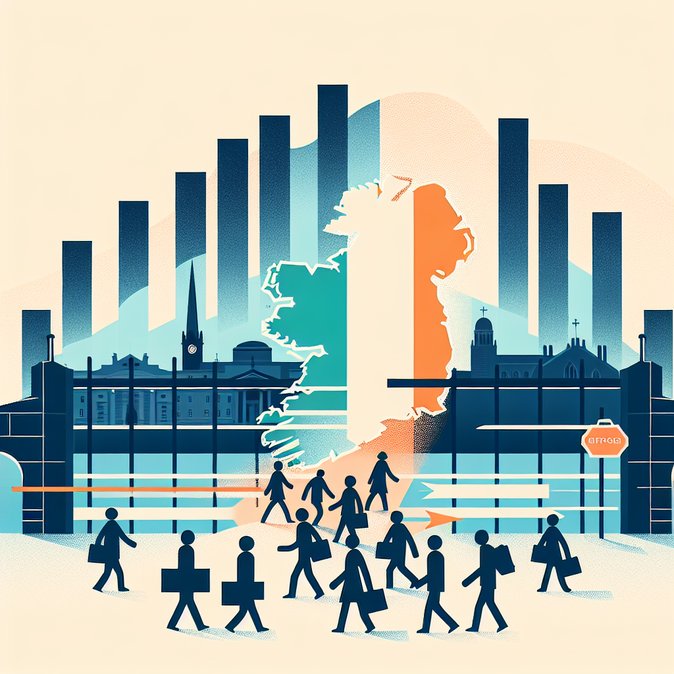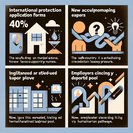
Ireland’s Deputy Prime Minister (Tánaiste) Simon Harris has ignited a heated debate after telling journalists on 30 October that “our migration numbers are too high” and that Government must “consider them in a very serious way.” Harris linked the surge in asylum claims—from roughly 3,000 annually pre-pandemic to almost 20,000 last year—to strains on the system and delays in deporting those refused protection.
Opposition parties pounced. Labour MEP Aodhán Ó Ríordáin condemned the remarks as “dangerous dog-whistling,” accusing the Tánaiste of echoing right-wing rhetoric reminiscent of Nigel Farage. The Social Democrats and several civil-society groups warned that political language could inflame anti-migrant sentiment, pointing to riots outside Dublin’s Citywest asylum accommodation centre earlier this month.
The Government argues it is already tightening procedures: official data show new asylum applications have fallen 38 per cent year-on-year to 9,589, and deportations have been expedited. Yet business leaders are wary of any blanket clamp-down. Tech multinationals rely on Critical Skills Employment Permits, while hospitals continue to recruit overseas nurses amid domestic shortages. Employers’ group Ibec cautioned that “broad-brush messages risk deterring the high-skill talent Ireland needs to stay competitive.”
Mobility teams should track policy developments closely. While no immediate legislative changes have been tabled, analysts expect renewed scrutiny of work-permit salary thresholds, student-visa compliance and the controversial use of tourist visas as a back door to the labour market. Companies may wish to accelerate pending permit filings and reassess communication strategies with non-EU staff who may feel unsettled by the political rhetoric. The episode underscores how public discourse can quickly shift the operating environment for global mobility in Ireland.
Opposition parties pounced. Labour MEP Aodhán Ó Ríordáin condemned the remarks as “dangerous dog-whistling,” accusing the Tánaiste of echoing right-wing rhetoric reminiscent of Nigel Farage. The Social Democrats and several civil-society groups warned that political language could inflame anti-migrant sentiment, pointing to riots outside Dublin’s Citywest asylum accommodation centre earlier this month.
The Government argues it is already tightening procedures: official data show new asylum applications have fallen 38 per cent year-on-year to 9,589, and deportations have been expedited. Yet business leaders are wary of any blanket clamp-down. Tech multinationals rely on Critical Skills Employment Permits, while hospitals continue to recruit overseas nurses amid domestic shortages. Employers’ group Ibec cautioned that “broad-brush messages risk deterring the high-skill talent Ireland needs to stay competitive.”
Mobility teams should track policy developments closely. While no immediate legislative changes have been tabled, analysts expect renewed scrutiny of work-permit salary thresholds, student-visa compliance and the controversial use of tourist visas as a back door to the labour market. Companies may wish to accelerate pending permit filings and reassess communication strategies with non-EU staff who may feel unsettled by the political rhetoric. The episode underscores how public discourse can quickly shift the operating environment for global mobility in Ireland.










